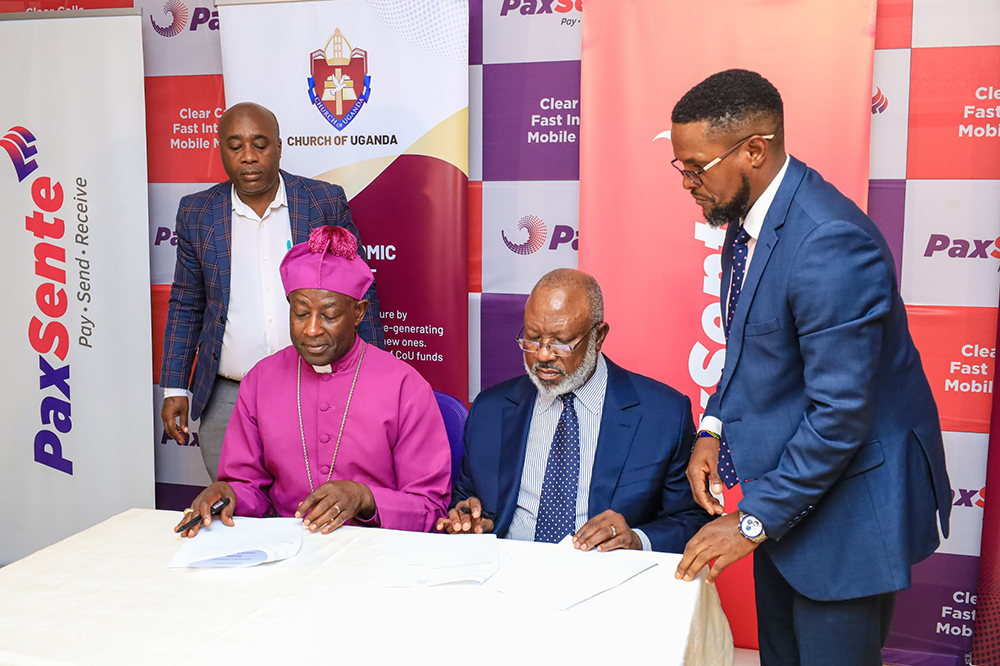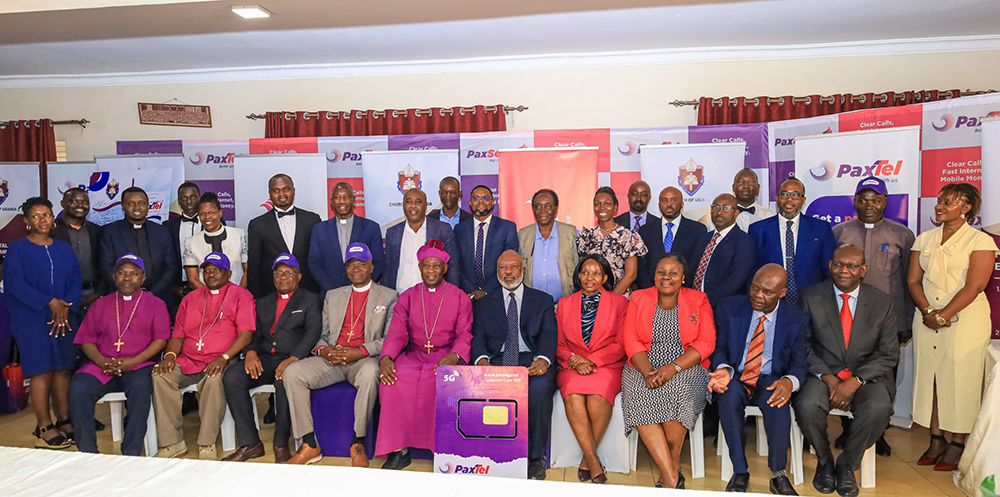Church of Uganda gets sh50m support package for retired clergy
Kaziimba commended Paxtel Telecom for extending their partnership beyond technology to directly impact the lives of retired church leaders.
The Archbishop of the Church of Uganda, Rt Rev. Dr Stephen Kaziimba Mugalu, commended Paxtel Telecom for extending their partnership to directly impact the lives of retired church leaders. (Courtesy)
____________________
The Church of Uganda efforts to improve the welfare of retired members of the clergy and recognise contributions to the growth of the church and the nation have received a boost of sh50 million.
The package was unveiled on Thursday at the Provincial headquarters in Namirembe, Kampala announcement during the signing of a Memorandum of Understanding (MoU) between the Church of Uganda and Paxtel Telecom.
Presiding over the ceremony, the Archbishop of the Church of Uganda, Rt Rev. Dr Stephen Kaziimba Mugalu, commended Paxtel Telecom for extending their partnership beyond technology to directly impact the lives of retired church leaders.
He emphasised that the Church’s vision of becoming a self-sustaining and development-driven institution requires collaboration with like-minded partners.
“You cannot grow alone. Man is not an island. We need to support one another,” Archbishop Kaziimba said, noting that partnerships like this one were essential for the Church’s mission in an increasingly digital age.
He revealed that Paxtel had in the past supported COU agricultural and educational initiatives.
Archbishop of the Church of Uganda, Rt Rev. Dr Stephen Kaziimba Mugalu signing the MoU with John Kamya Mukalazi, the chairman of Hamilton Telecom and Paxtel Mobile. (Courtesy)
Partnership for transformation
John Kamya Mukalazi, the chairman of Hamilton Telecom and Paxtel Mobile, described the agreement to enhance collaboration between the Church and the telecom sector as “a momentous step” toward using technology to uplift communities and strengthen Uganda’s social fabric.
“This is not merely a signing ceremony. It is the culmination of a shared vision to harness the power of technology to serve the community, foster development, and create a more connected and prosperous society,” Mukalazi said.
The company’s newest innovation, Agrotel, he explained, will integrate telecommunications and agriculture to help farmers access critical information through digital platforms powered by artificial intelligence (AI).
Mukalazi said the collaboration with the Church of Uganda would focus on three main areas:
Developing a unified communication platform to improve coordination between dioceses and parishes.
Creating new investment opportunities for the church through technology-driven ventures.
Expanding access to secure and efficient mobile money services, in partnership with global ally MasterCard, to enhance financial inclusion across communities.
“Our partnership is built on shared values and mutual benefit,” Mukalazi said. “It’s a testament to what can happen when faith institutions and business enterprises come together with a common purpose.”
He also highlighted that the partnership aims to ensure that a portion of revenues generated through Paxtel’s services directly benefits the Church.
Impact on retired clergy
Speaking at the event, Bishop Michael Chorey of Karamoja Diocese expressed gratitude for the donation, saying it would provide relief to retired bishops and clergy, many of whom struggle to sustain their families after years of ministry.
“This is going to be put to good use, especially in educating the children of retired bishops. Many retired clergy have been struggling with educating their children, so this is really much appreciated,” Bishop Chorey said.

Members of the Clergy, Bishops and Staff of Paxtel Telecom pose for a group photo with the Archbishop of Uganda, Rt Rev. Stephen Kazimba Mugalu. (Courtesy)
The Church of Uganda has, for years, faced challenges in supporting its retired members. Many clergy retire without formal pensions, relying instead on goodwill from congregations and limited diocesan support.
Recent reports have highlighted growing concern over the welfare of retired clergy in Uganda. In 2023, a Church of Uganda welfare committee report revealed that over 60% of retired clergy lived in financial hardship, with some unable to access medical care or support their dependents.
The Church’s pension scheme, though established, remains underfunded and inconsistent across dioceses. The Archbishop has on several occasions appealed to the government and private sector to partner in creating sustainable welfare programs for clergy after active service.